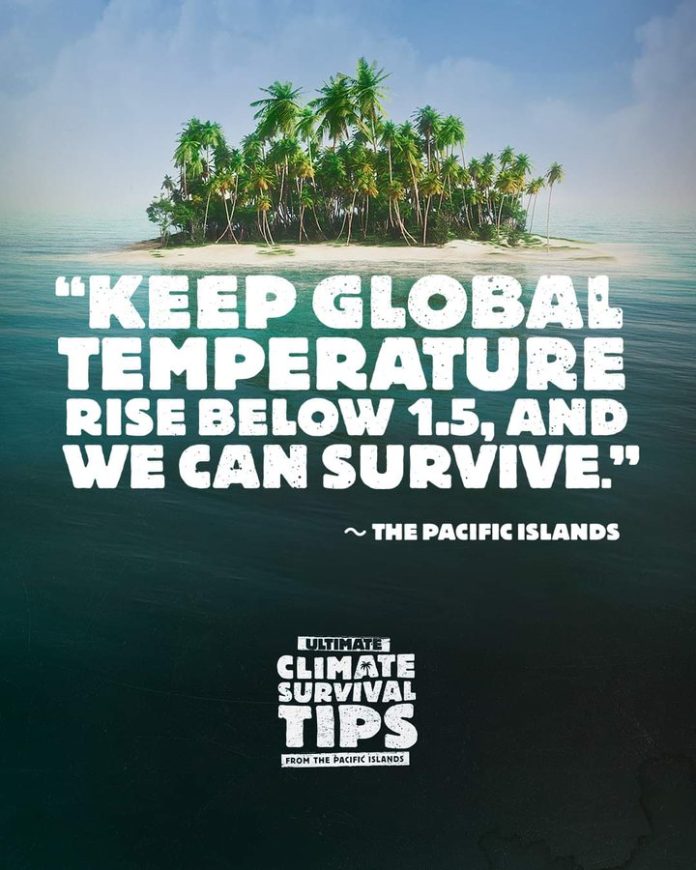The Pacific Islands need an urgent commitment for net zero carbon emissions by 2050 and a call for action is being launched by Pacific Small Islands Developing States in partnership with the Secretariat of the Pacific Regional Environment Programme (SPREP) ahead of the UN Climate Conference COP27 in Egypt on 06 November.
SPREP, an intergovernmental organisation charged with protecting and improving the environment for the Pacific Islands, is sharing four ultimate climate survival tips, www.climatesurvivaltips.com, including one from Cook Islands Prime Minister, Mark Brown.
“People throughout the Pacific Islands are already having to survive the devastating effects of climate change,” said Tagaloa Cooper, Director of Climate Change Resilience of SPREP.
“At the current warming level of 1.2 degrees, the Pacific is already suffering. Our seas are rising, our oceans are warming, and extreme events are more frequent and severe. We’re sharing these ultimate survival tips from people who are actively using them in their day-to-day lives, as we implore the leaders attending COP27 to take urgent action.”
The ultimate survival tips include:
•Mark Brown, Cook Islands Prime Minister, recommends protecting the foreshore, planting crops inland or moving them to higher ground, and building hurricane shelters that will provide safety during severe storms.
• Timoci Naulusala, Survival Expert living in the Pacific Islands, explains how he helps prepare his family to survive a climate food crisis by growing his own crops, moving his plantations to higher ground in case of flooding, and stockpiling essentials like noodles and corn beef.
• AnnMary Raduva, Survival Expert living in the Pacific Islands, has been doing everything she can to combat the current sea level rise in her village and recommends planting large volumes of mangroves, building a sea wall out of rocks, sandbags or corals from the beach to protect your coast, and staying positive.
• Vasiti Salababa, Survival Expert living in the Pacific Islands, explains how to survive a cyclone and the steps her family have taken to survive including strengthening her home when the weather is nice, checking for cyclone warnings such as flocks of birds in the air and bees on the ground, and having an escape plan to get to higher ground.
Tagaloa Cooper, Director of Climate Change Resilience of SPREP said, “The recent IPCC report has highlighted the urgency with which we need to act and we are seeing the effects of Climate Change first-hand across all our Pacific Islands. It is critical that leaders at COP27 commit to limiting emissions. The people of the Pacific’s very existence depends on it.”.
The 1.5 to Stay Alive digital campaign is coordinated by the Secretariat of the Pacific Regional Environmental Programme (SPREP) and supported by Aotearoa New Zealand.
To learn more about the campaign please visit: www.climatesurvivaltips.com
SOURCE: SPREP/PACNEWS


















